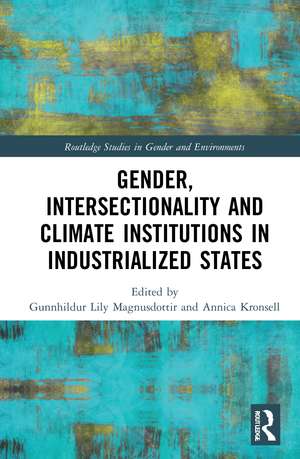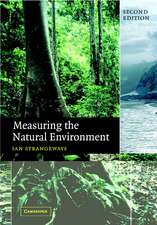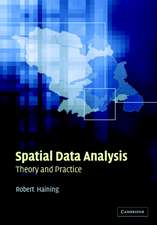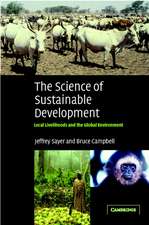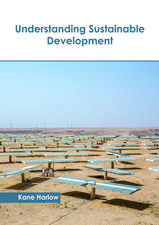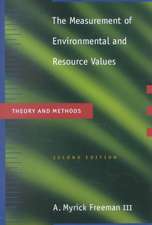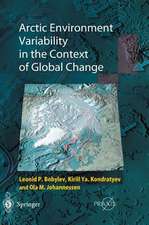Gender, Intersectionality and Climate Institutions in Industrialised States: Routledge Studies in Gender and Environments
Editat de Gunnhildur Lily Magnusdottir, Annica Kronsellen Limba Engleză Hardback – 17 iun 2021
With contributions from a range of expert scholars in the field, this volume investigates policy-making in climate institutions from the perspective of power as it relates to gender. It also considers other intersecting social factors at different levels of governance, from the global to the local level and extending into climate-relevant sectors. The authors argue that a focus on climate institutions is important since they not only develop strategies and policies, they also (re)produce power relations, promote specific norms and values, and distribute resources. The chapters throughout draw on examples from various institutions including national ministries, transport and waste management authorities, and local authorities, as well as the European Union and the UNFCCC regime. Overall, this book demonstrates how feminist institutionalist theory and intersectionality approaches can contribute to an increased understanding of power relations and social differences in climate policy-making and in climate-relevant sectors in industrialized states. In doing so, it highlights the challenges of path dependencies, but also reveals opportunities for advancing gender equality, equity, and social justice.
Gender, Intersectionality and Climate Institutions in Industrialized States will be of great interest to students and scholars of climate politics, international relations, gender studies and policy studies.
The Open Access version of this book, available at https://doi.org/10.4324/9781003052821, has been made available under a Creative Commons Attribution-Non Commercial-No Derivatives 4.0 license.
| Toate formatele și edițiile | Preț | Express |
|---|---|---|
| Paperback (1) | 369.18 lei 6-8 săpt. | |
| Taylor & Francis – 9 ian 2023 | 369.18 lei 6-8 săpt. | |
| Hardback (1) | 1000.27 lei 6-8 săpt. | |
| Taylor & Francis – 17 iun 2021 | 1000.27 lei 6-8 săpt. |
Preț: 1000.27 lei
Preț vechi: 1219.84 lei
-18% Nou
Puncte Express: 1500
Preț estimativ în valută:
191.43€ • 199.11$ • 158.03£
191.43€ • 199.11$ • 158.03£
Carte tipărită la comandă
Livrare economică 15-29 aprilie
Preluare comenzi: 021 569.72.76
Specificații
ISBN-13: 9780367512057
ISBN-10: 036751205X
Pagini: 278
Ilustrații: 48
Dimensiuni: 156 x 234 x 18 mm
Greutate: 0.45 kg
Ediția:1
Editura: Taylor & Francis
Colecția Routledge
Seria Routledge Studies in Gender and Environments
Locul publicării:Oxford, United Kingdom
ISBN-10: 036751205X
Pagini: 278
Ilustrații: 48
Dimensiuni: 156 x 234 x 18 mm
Greutate: 0.45 kg
Ediția:1
Editura: Taylor & Francis
Colecția Routledge
Seria Routledge Studies in Gender and Environments
Locul publicării:Oxford, United Kingdom
Public țintă
Postgraduate and Undergraduate AdvancedCuprins
1. Introduction: Gender, Intersectionality and Institutions Part I: Intergovernmental and Governmental Climate Institutions 2. Gender in the Global Climate Governance Regime 3. EU External Climate Policy 4. How to Make Germany’s Climate Policy Gender-Responsive 5. Promoting a Gender Agenda in Climate and Sustainable Development 6. Take a Ride into the Danger Zone? Part II: Sectoral Climate Institutions 7. Towards a Climate Friendly Turn? 8. Wasting Resources: Challenges to Implementing Existing Policies and Tools for Gender Equality and Sensitivity in Climate Change Related Policy 9. Gender Analysis of Policymaking in Construction and Transportation 10. Why Radical Transformation is Necessary for Gender Equality and a Zero Carbon European Construction Sector Part III: Local, Community Institutions and Climate Practices 11. Addressing Climate Policy-making and Gender in Transport Plans and Strategies 12. When Gender Equality and Earth Care Meet: Ecological Masculinities in Practice 13. Pathways for Inclusive Wildfire Response and Adaptation in Northern Saskatchewan 14. Concluding Remarks
Recenzii
"Highlighting the role of climate institutions in shaping how we understand as well as act on climate change, this important collection points to both obstacles and opportunities to take social difference seriously in climate spaces. Gender, Intersectionality and Climate Institutions in Industrialised States is essential reading for all who seek to make climate change policy both effective and just."
Nicole Detraz, Associate Professor, Department of Political Science, The University of Memphis, USA
"What an exciting volume! It pushes the boundaries of where we should look for the workings of gender and its intersections, convincingly bringing into view a range of unlikely sectors and surprising sites. And it does so with theoretical sophistication, paying attention to institutions while celebrating critical acts. A highly welcome contribution to the literatures on gender mainstreaming and climate change."
Elisabeth Prügl, Professor of International Relations, Co-Director, Gender Centre, Graduate Institute of International and Development Studies in Geneva, Switzerland
"This volume is a valuable addition to the small but growing body of critical feminist scholarship on policies, problems and power relations within climate institutions in the global north. Drawing on institutionalist and intersectional theoretical framings, the chapters expertly tackle tricky questions (such as ‘does having women at the table really make a difference?’) and show why feminist research on climate politics in rich, industrialised contexts is urgently needed to redress longstanding inequalities, misconceptions and oversights in this expanding field of inquiry."
Sherilyn MacGregor, Reader in Environmental Politics, The University of Manchester, UK.
Nicole Detraz, Associate Professor, Department of Political Science, The University of Memphis, USA
"What an exciting volume! It pushes the boundaries of where we should look for the workings of gender and its intersections, convincingly bringing into view a range of unlikely sectors and surprising sites. And it does so with theoretical sophistication, paying attention to institutions while celebrating critical acts. A highly welcome contribution to the literatures on gender mainstreaming and climate change."
Elisabeth Prügl, Professor of International Relations, Co-Director, Gender Centre, Graduate Institute of International and Development Studies in Geneva, Switzerland
"This volume is a valuable addition to the small but growing body of critical feminist scholarship on policies, problems and power relations within climate institutions in the global north. Drawing on institutionalist and intersectional theoretical framings, the chapters expertly tackle tricky questions (such as ‘does having women at the table really make a difference?’) and show why feminist research on climate politics in rich, industrialised contexts is urgently needed to redress longstanding inequalities, misconceptions and oversights in this expanding field of inquiry."
Sherilyn MacGregor, Reader in Environmental Politics, The University of Manchester, UK.
Notă biografică
Gunnhildur Lily Magnusdottir is an Associate Professor in Political Science and is Deputy Head of The Department of Global Political Studies at Malmö University, Sweden.
Annica Kronsell is Professor and Chair of Environmental Social Science at the School of Global Studies at Gothenburg University, Sweden.
Annica Kronsell is Professor and Chair of Environmental Social Science at the School of Global Studies at Gothenburg University, Sweden.
Descriere
This book explores how climate institutions in industrialised countries work to further recognition of social differences and integrate this understanding in climate policy making. It will be of great interest to students and scholars of climate politics, international relations, gender studies and policy studies.
